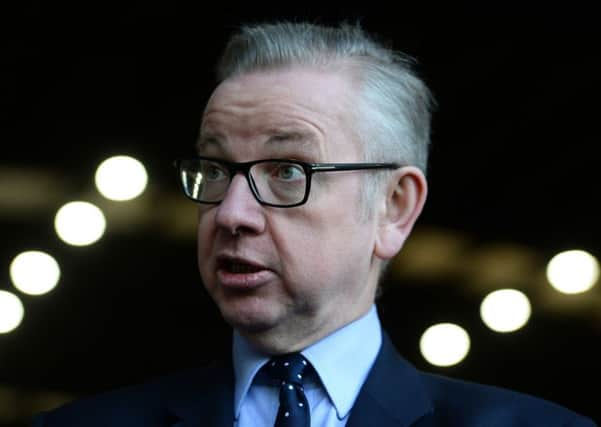Log burners and house coal to be banned in fight against air pollution


Michael Gove called for action on emissions from a variety of sources, including in the home, as he set out plans to reduce people’s exposure to particulate matter – considered the most damaging pollutant.
The proposals, outlined in the government’s Clean Air Strategy, include plans to legislate to prohibit the sale of the most polluting fuels and ensure only the cleanest stoves are available for sale by 2022.
Advertisement
Hide AdAdvertisement
Hide AdAnd there will be changes to existing smoke control legislation, as well as new powers for local authorities to take action in high pollution areas.
Stoves and open fires are now the single biggest source of particulate matter emissions, according to the Department for the Environment, which intends to restrict sales of wet wood for domestic burning and apply sulphur and smoke emission limits to all solid fuels.
Sales of bituminous or traditional house coal may also be phased out.
Ministers predict that the measures will cut the cost of air pollution to society by £1.7 billion every year by 2020, rising to £5.3 billion every year by 2030 – owing to savings from public health benefits.
Advertisement
Hide AdAdvertisement
Hide AdThe UK is the first major economy to adopt goals based on World Health Organisation (WHO) recommendations, and the UN agency has praised the strategy as “an example for the rest of the world to follow”.
Launching the plans, Mr Gove said: “The evidence is clear. While air quality has improved significantly in recent years, air pollution continues to shorten lives, harm our children and reduce quality of life.
“We must take strong, urgent action. Our ambitious strategy includes new targets, new powers for local government and confirms that our forthcoming Environment Bill will include new primary legislation on air quality.
“While air pollution may conjure images of traffic jams and exhaust fumes, transport is only one part of the story and the new strategy sets out the important role all of us – across all sectors of work and society – can play in reducing emissions and cleaning up our air to protect our health.”
Advertisement
Hide AdAdvertisement
Hide AdThe strategy also contains plans to reduce ammonia emissions from farming, with a requirement for low emissions farming techniques and plans to regulate to minimise pollution from the use of fertilisers.
Health Secretary Matt Hancock said environmental factors determine around 30% of a person’s healthy life expectancy, and warned that air pollution poses the “single greatest environmental threat to human health”.
He added: “Breathing dirty air is associated with a host of health problems, from asthma to cardiovascular disease and lung cancer, and all too often it is the most vulnerable – children, older people and those from poorer backgrounds – who are hit hardest. In short: clean air helps you live longer.”